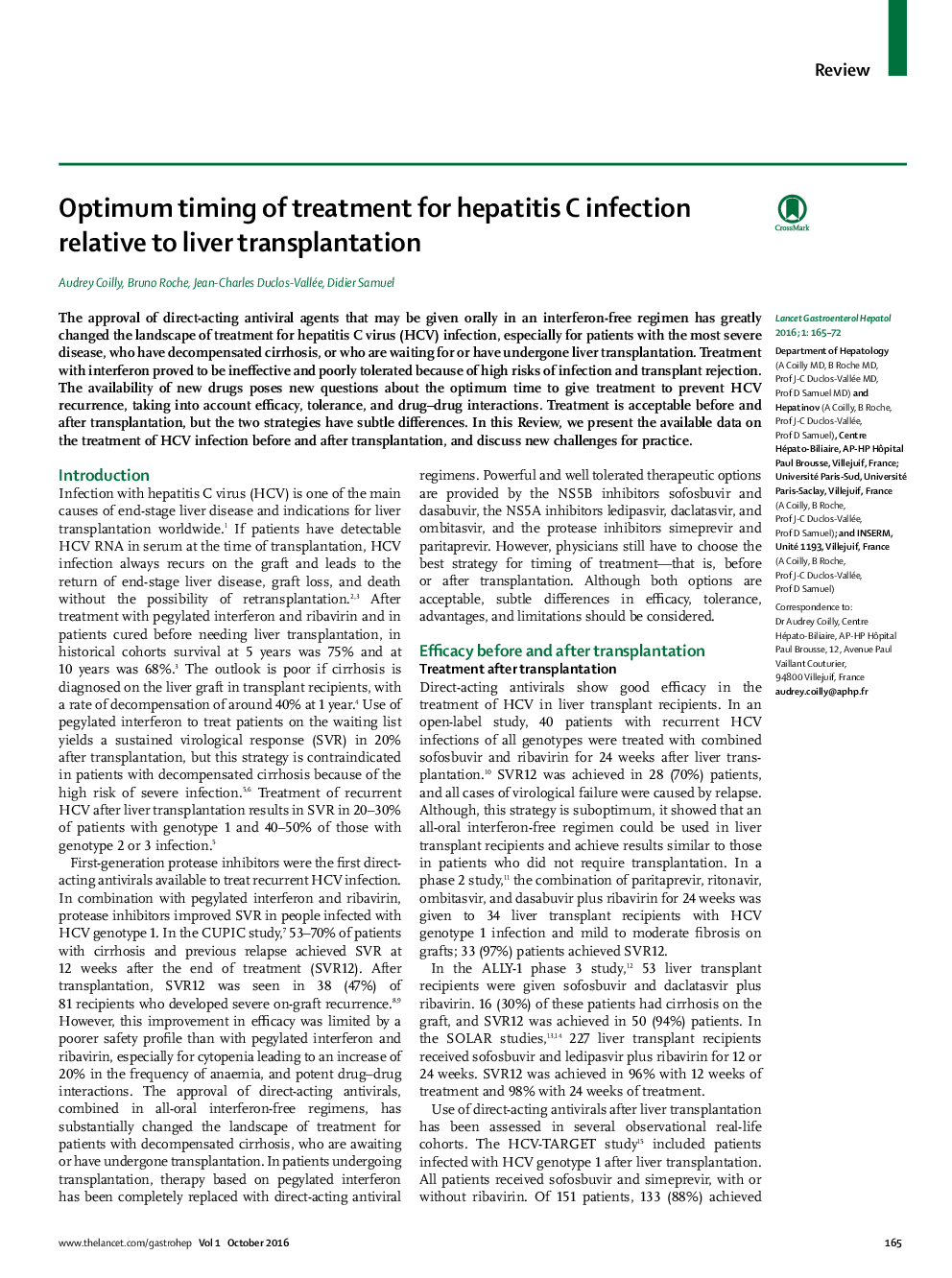| Article ID | Journal | Published Year | Pages | File Type |
|---|---|---|---|---|
| 3316258 | The Lancet Gastroenterology & Hepatology | 2016 | 8 Pages |
SummaryThe approval of direct-acting antiviral agents that may be given orally in an interferon-free regimen has greatly changed the landscape of treatment for hepatitis C virus (HCV) infection, especially for patients with the most severe disease, who have decompensated cirrhosis, or who are waiting for or have undergone liver transplantation. Treatment with interferon proved to be ineffective and poorly tolerated because of high risks of infection and transplant rejection. The availability of new drugs poses new questions about the optimum time to give treatment to prevent HCV recurrence, taking into account efficacy, tolerance, and drug–drug interactions. Treatment is acceptable before and after transplantation, but the two strategies have subtle differences. In this Review, we present the available data on the treatment of HCV infection before and after transplantation, and discuss new challenges for practice.
